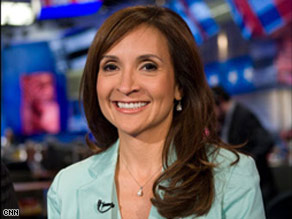
Audiences found the vampire romance "Twilight" infectious in its opening weekend, pushing the movie to a take of $70.6 million.
Catherine Hardwicke's film also enjoyed the biggest opening ever for a female director, blowing away the previous standard of $41.1 million set by Mimi Leder's "Deep Impact" in 1998.
Drawing from its huge fan base of teenage girls, who fell for Stephenie Meyer's novel of forbidden love between brooding vampire Edward Cullen and bookish high schooler Bella Swan, "Twilight" made a whopping $20,636 per theater, according to Sunday morning estimates.
And the fangirls will get another taste soon enough: Summit Entertainment, which released "Twilight," announced during the weekend that it's going ahead with production of "New Moon," based on the second book in Meyer's internationally best-selling series. Robert Pattinson and Kristen Stewart will return as its star-crossed lovers, but whether Hardwicke will be at the helm again is still being determined.
The laid-back Hardwicke, who went bodyboarding at sunset Saturday to take her mind off this high-pressure weekend, said Sunday morning that she was heading to a meeting later in the day to discuss her possible involvement in "New Moon."
"I want to be sure that it's going to be done right. I don't want to rush into it," she said. "It's not like `Friday the 13th' or `Halloween,' you can't just do it super fast and knock another one out. I want to understand their plans and all that."
Hardwicke, whose previous films include "Thirteen" and "Lords of Dogtown," also said she was thrilled about the prospect that the success of "Twilight" will inspire other women and young girls to pursue a career in filmmaking.
"I hope not just women but all minorities get enthused and encouraged by it. I look at the (Directors Guild of America) calendar, at the pictures of everyone that had different movies each month, and it's usually 22-29 different directors, and almost every month there's one female and maybe one minority," she said. "We've been having a lot of events, talking to a lot of fans, and so many kids of course are madly in love with Robert but tons of kids of every kind (and) girls are coming up to me and saying `I want to direct now, I'm writing a screenplay now, you're my inspiration.' I think it's great that people are getting excited."
The big opening for "Twilight" also helps put Summit Entertainment on the map, said Richie Fay, the company's president of domestic distribution. Summit has only been around since April 2007 and "Twilight," its sixth release, cost just $37 million to make.
"It certainly says what we've been saying all along, that we can do more with less," he said. When Warner Bros. pushed "Harry Potter and the Half-Blood Prince" from this weekend to a July 2009 debut, and Summit jumped to move "Twilight" from Dec. 12 into that spot on the schedule, "that decision was made in a day. I don't know that the major studios have that ability."
The tremendous take for "Twilight" far exceeded expectations, which had been set around $50 million.
"Teen girls rule the earth," said Paul Dergarabedian, president of Media By Numbers. "If you look back at the `Hannah Montana' movie, how well that did, and now this movie, the teen girl audience will never be ignored again or underestimated. It was always teen boys who were the coveted ones, but someone finally caught on to the idea that girls love movies, too, and if you create something that they're into, that they're passionate about, they will come out in big numbers and drive the box office."
The other major debut of the weekend, Walt Disney's 3-D animated "Bolt," made $27 million to take third place. Featuring the voices of John Travolta and Miley Cyrus, "Bolt" follows the cross-country journey of a dog who plays a superhero on television, but sadly realizes he has no magical powers once he gets separated from his "person."
Chuck Viane, Disney's head of distribution, said "Twilight" took a bite out of everyone's box office this weekend. If the vampire saga hadn't been around, Viane said, Disney would have expected an opening of at least $30 million.
"Obviously we believe in the Thanksgiving holiday in a big, big way," he said. "We've always viewed this as one of those 10-day marathons between opening day and the end of the Thanksgiving weekend."
Last weekend's No. 1 movie, "Quantum of Solace," came in second with $27.4 million. The latest James Bond extravaganza has now grossed $109.5 million, and it crossed the $100 million mark faster than any other film in the franchise, said Rory Bruer, head of distribution for Sony. It's also made $309 million internationally.
"We're in great shape. We're way ahead of where we were with `Casino Royale,'" said Bruer, referring to the last Bond picture, which also starred Daniel Craig as a more visceral incarnation of 007.
Estimated ticket sales for Friday through Sunday at U.S. and Canadian theaters, according to Media By Numbers LLC. Final figures will be released Monday.
1. "Twilight," $70.5 million.
2. "Quantum of Solace," $27.4 million.
3. "Bolt," $27 million.
4. "Madagascar 2: Escape 2 Africa," $16 million.
5. "Role Models." $7.2 million.
6. "Changeling," $2.6 million.
7. "High School Musical 3: Senior Year," $2 million.
8. "Zack and Miri Make a Porno," $1.7 million.
9. "The Boy in the Striped Pajamas," $1.67 million.
10. "The Secret Life of Bees," $1.28 million.
'Business' 카테고리의 다른 글
| The BlackBerry Storm Challenges the iPhone (0) | 2008.11.25 |
|---|---|
| Facebook wins $873M judgment against spammer (0) | 2008.11.25 |
| Wall Street Cheer CitiGroup Bailout (0) | 2008.11.25 |
| Deck the Stores with Bargains (0) | 2008.11.25 |
| Research in Motion shares rise on BlackBerry sales (0) | 2008.11.25 |






